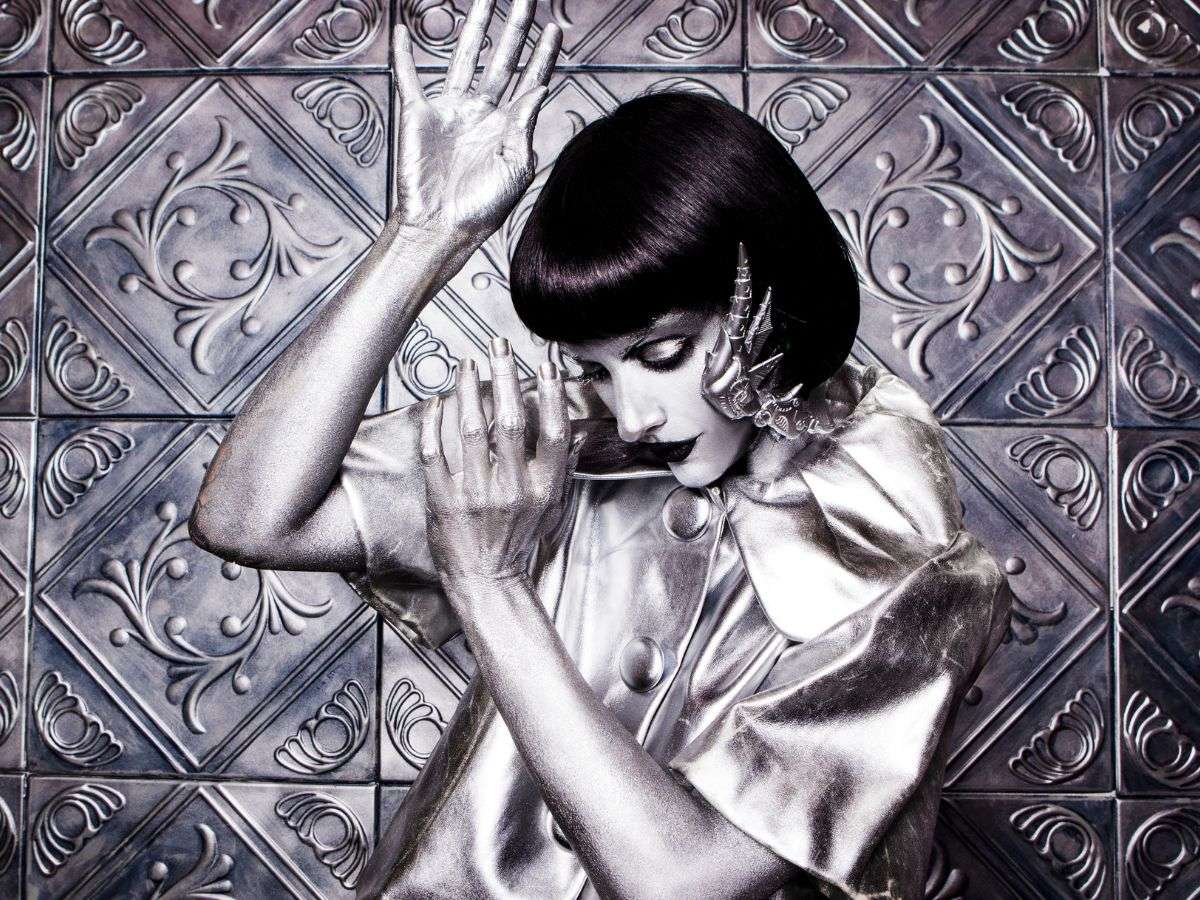Introduction
The fashion industry, a vibrant and ever-evolving landscape, has embraced the digital age with open arms.
The fashion industry, known for its dynamic nature and constant evolution, is undergoing a revolutionary transformation with the integration of Artificial Intelligence (AI).
Explore the transformative impact of Artificial Intelligence in fashion industry with our latest blog post.
One of the Thesis statements is that: “The Integration of AI is Revolutionizing the Fashion Landscape, from Design to Customer Experience.”
Table of Contents
Design Innovation and Creation
The power of AI to analyze and forecast trends has completely changed the way that fashion is created.
Open to the digital age, the fashion industry is a dynamic and ever-changing field.
Artificial Intelligence (AI) is revolutionizing the fashion industry by providing advanced techniques and technologies that are reshaping various aspects of the industry.
AI-powered technologies can predict what colors, fabrics, and styles will be in demand by sorting through massive amounts of data from social media, runway events, and actual sales.
Designers are also using AI to push the boundaries of traditional fashion design by developing unique patterns and structures, allowing for a more dynamic and personalized approach to fashion development.
AI in Fashion Design
In the world of fashion design, artificial intelligence (AI) has become an influence that is completely changing the way designers imagine, develop, and realize their ideas.
The implementation of technology into the creative process has resulted in unique tools and techniques that challenge traditional design processes.
Generative Design Tools
For fashion designers, AI-powered generative design tools have changed the game. These tools use algorithms to generate designs on their own, depending on predefined parameters.
Designers provide parameters like preferred fabrics, color schemes, and styles, and AI creates original, cutting-edge design ideas.
This union of human imagination and computer intelligence has resulted in previously unseen designs that regularly break established fashion rules.
Collaborations Between Designers and AI Algorithms
The collaboration demonstrates the creative interaction between AI algorithms and human creativity.
AI is being used by designers to improve their creative process, which is producing clothes that are innovative and on-trend.
Predictive Analytics in Trend Forecasting
The power of AI to analyze large volumes of data has completely changed trend predictions.
By using predictive analytics to better understand customer preferences, brands, and designers can remain ahead of the curve and produce visually appealing clothing that is attractive to the public.
Efficiency in Supply Chain Management
Strong supply chains ensure smooth products and services are delivered from manufacturing to the final customer. This is the foundation of profitable companies.
Companies are using data analytics, efficient procedures, and cutting-edge technologies to improve the effectiveness of their supply chains at a time of intense competition and quickly shifting customer expectations.
AI in Inventory Management
Effective inventory management is one of the major issues facing the fashion business.
Fashion firms may minimize waste and reduce overstock by maintaining optimal inventory levels with AI-driven demand forecasting.
This is also the main role of Artificial Intelligence in Fashion Industry which is cost effective.
Reducing Production Costs Through Smart Manufacturing
AI plays a more cost-effective role in supply chain optimization.
Fashion firms may provide competitively priced, high-quality products that promote sustainability through affordability by optimizing their production processes.
Sustainability in Style: AI’s Contribution to Eco-Friendly Fashion

AI for Sustainable Materials
Artificial Intelligence is helping to find and create sustainable materials.
To identify environmentally suitable substitutes, machine learning algorithms evaluate data, which supports the fashion industry’s sustainability initiatives.
Fashion Economy with AI
AI supports the circular fashion philosophy, which encourages recycling and upcycling.
AI-powered smart recycling methods help to reduce fashion sector waste, coinciding with global goals to create a circular economy.
Reducing Waste Through AI-Driven Initiatives
AI initiatives in sustainability go further in waste reduction to include materials.
AI helps to reduce the environmental impact of the fashion industry by optimizing production processes and encouraging responsible consumption.
Personalization and Consumer Experience
By providing customized shopping experiences, AI-based solutions are revolutionizing the way consumers interact with brands.
The role of Artificial Intelligence in Fashion Industry helps us by providing customers with a chatbot experience.
AI chatbots help customers with their concerns, improving customer service by giving immediate and personalized responses.
The online shopping experience is further enhanced by machine learning algorithms that make suggestions for products based on user preferences, browsing history, and purchase data.
Challenges and Ethical Considerations
Addressing Biases in AI Algorithms
The application of AI in fashion design and recommendation systems raises issues about bias. To make AI algorithms equitable, inclusive, and representative of a range of viewpoints, these biases must be addressed.
Privacy Concerns in AI-Driven Fashion Platforms
Privacy issues arise as AI gathers and analyses massive volumes of data for customized experiences.
Fashion firms need to put strong security measures in place to safeguard consumer information and provide a safe and reliable online purchasing experience.
Fashion’s Future with Artificial Intelligence
The fashion industry’s use of artificial intelligence (AI) will be characterized by a dynamic environment formed by algorithms for continuous learning.
Artificial Intelligence in fashion industry is expected to remain at the forefront of innovation thanks to these algorithms, which are made to adapt and change in response to fresh data inputs.
These algorithms make sure that fashion recommendations and design processes stay innovative and adaptable to the constantly shifting needs of the industry by keeping up with changing customer preferences.
AI integration is having a big influence on fashion events and exhibitions, going beyond the design and production stages.
Technology is increasingly playing a crucial and revolutionary role in the presentation of fashion, from AI-generated designs that push the creative edge to interactive experiences that attract viewers.
Looking ahead, the combination of AI and fashion technology is projected to bring forth new trends including elegant customization possibilities and AI-powered fashion assistants.
These innovations have the potential to completely transform the fashion business, providing customers with a level of customization never seen before and improving the whole fashion experience.
The future of AI in fashion is not just about innovation, but also about making the industry more interactive, adaptive, and customer-centric.
Conclusion
There’s no denying that the fashion industry is changing thanks to the incorporation of AI.
Artificial Intelligence (AI) has a wide range of applications, including supply chain optimization, process optimization, personalization in retail, and sustainability.
However, the industry must manage obstacles ethically, ensuring that AI development follows ethical standards.
In this blog post, we try to cover the impact of Artificial Intelligence in fashion industry which is the most demanding topic to learn. Hope you like to red this.



